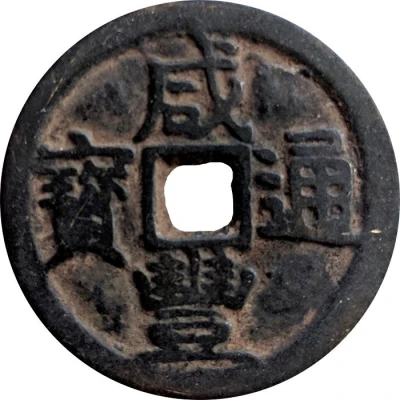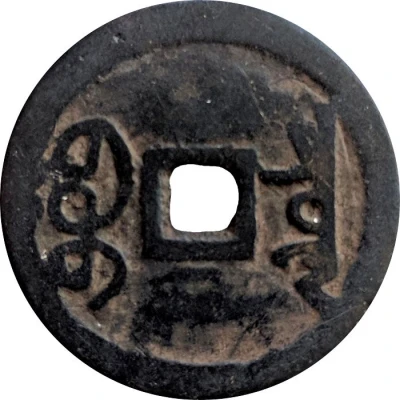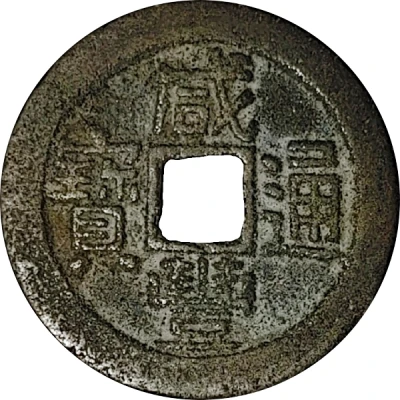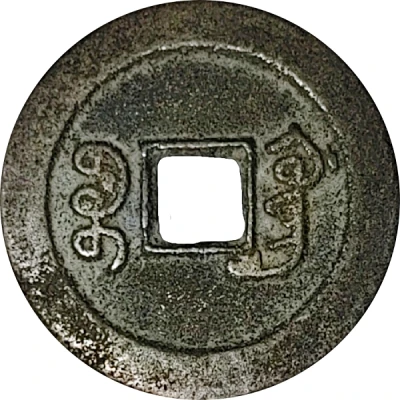1 Cash - Xianfeng Tongbao; Boo-yuwan; zinc ND
| Zinc | - | 23 mm |
| Issuer | Empire of China |
|---|---|
| Emperor | Qing dynasty › Xianfeng (咸豐帝) (1850-1861) |
| Type | Standard circulation coin |
| Years | 1854-1857 |
| Value | 1 Cash |
| Currency | Cash (621-1912) |
| Composition | Zinc |
| Diameter | 23 mm |
| Shape | Round with a square hole |
| Technique | Cast |
| Orientation | Medal alignment ↑↑ |
| Demonetized | Yes |
| Updated | 2024-10-03 |
| Numista | N#225822 |
|---|---|
| Rarity index | 100% |
Reverse
Two Manchu words (read vertically) separated by the hole.
Script: Mongolian / Manchu
Lettering: ᠪᠣᠣ ᠶᡠᠸᠠᠨ
Translation: Boo-yuwan
Edge
Plain
Comment
These were first introduced in 1854.The theory for these zinc/lead coins is that, if iron is an acceptable substitute for bronze, zinc must be an acceptable substitute for iron. Original trials showed pure zinc coins were brittle and would not last long, but after experimenting with the alloy, 80% brittle zinc and 20% soft lead proved to be suitable for the intended purposes.
DocTongDots
DocTongHead
Interesting fact
One interesting fact about the Xianfeng zinc cash coin is that it was introduced during a time of economic reform in China, known as the "Xianfeng Reforms," which aimed to modernize the country's economy and reduce the influence of foreign powers. The use of zinc in the coinage was a departure from the traditional use of copper and silver, and was seen as a way to increase the supply of currency and stimulate trade. Despite these efforts, the coinage was not well received by the public and was eventually replaced by other forms of currency.



